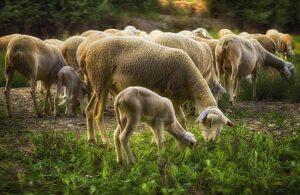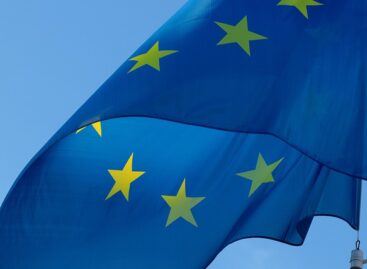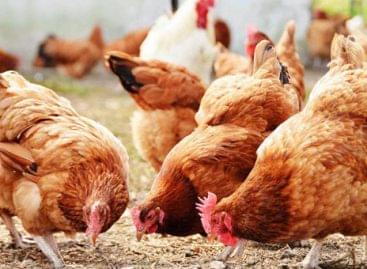Animal welfare and sustainability – A vision for European livestock farmers until 2030
The “Voice of European Animal Husbandry” group of like-minded EU partners active in the livestock food chain presents the main elements of the European livestock breeders’ vision of the sector until 2030, published by the European Livestock Breeders Forum, in its new communication material.

(Photo: Pixabay)
The European Forum of Farm Animal Breeders (EFFAB – European Forum of Farm Animal Breeders), which represents European animal breeding and breeding organizations in the EU, presented the document entitled “The vision of European Animal Breeders until 2030”. The material outlines the strategic vision until 2030 with the most important achievements, priorities and objectives of the sector, defining the direction of the future of European animal husbandry and aquaculture. EFFAB has developed a roadmap to achieve these goals while working closely with policy makers, stakeholders and farmers across Europe to promote food and nutrition security, in order to ensure a sustainable, competitive and resilient future for the European livestock sector. The material highlights the key role of genetic selection in improving the sustainability of livestock farming systems.
Responsible animal husbandry strategies can improve sustainability, animal welfare and health
Recognizing the need to move towards more responsible and balanced breeding strategies – that improve animal welfare and health, reduce resource use and mitigate the sector’s climate impact, and preserve genetic diversity – EFFAB developed the EFABAR Code, which aims to to show how breeders today incorporate all these elements into their breeding programs with the sole aim of contributing to improving the sustainability of all livestock systems. Ensuring access to safe and nutritious food is a key issue, as livestock producers are the starting point of European food systems. By developing balanced and responsible breeding strategies, breeders aim to provide farmers in all farming systems with reliable access to appropriate genetic improvements in various local and commercial breeds to improve food security and food quality. Genetic development and breeding techniques are essential tools for improving the welfare and health of farm animals, and they play a prominent role in the creation of strategies. Between 2008 and 2018, many improvements in animal welfare were achieved, which significantly reduced mortality in herds and the need to use antimicrobials. For example, in the poultry sector, 40% of the regulations laid down in breeding programs are aimed at improving bird welfare, leg strength, heart and lung function, and ensuring stable, healthier flocks in the long term. Similarly, between 2015 and 2020, the use of balanced breeding programs further increased the pre-weaning survival rate of piglets, and in salmon farming, mortality in herds decreased by more than 90% over the years.
Innovation and modern technologies can improve the quality of animal husbandry and animal welfare
The developed vision supports a balanced approach that integrates animal health and well-being, as well as environmental and economic sustainability. The environmental benefits of modernizing farming include a 1% annual reduction in methane emissions and a 3.5% reduction in nitrogen excretion every five years. 30% less feed consumption than 30 years ago has a positive environmental and economic impact on farms. Continuous advances in animal genetics, genomics, precision farming tools, artificial intelligence and machine learning enable EU livestock farmers to analyze vast amounts of data, leading to a better understanding of animal needs, reactions, production traits and increasingly responsible breeding practices. leads to strategies for all farmers and farming systems. Innovation and advanced technologies can improve livestock production efficiency and animal welfare, and through continuous research and development, the EU can maintain its global competitiveness.
Policy initiatives must be based on responsible breeding
A scientifically based, flexible, proportionate and coherent regulatory framework is needed to improve the sustainability of all livestock systems and maintain competitiveness. Regulations need to be designed in such a way that they can be quickly analyzed and adapted to the latest scientific findings, in order to ensure a safe operating space and the competitiveness of EU livestock farmers both in the EU and worldwide. Europe needs to invest in an ambitious EU research and innovation framework, including in animal husbandry, as the vision holds that the potential for competitive and sustainable growth, better circularity and improving the resilience of livestock systems lies in genetics.
NAK/ELV
Related news
Related news
Tesco sets out store expansion plans in 2026 including five former Amazon Fresh sites
🎧 Hallgasd a cikket: Lejátszás Szünet Folytatás Leállítás Nyelv: Auto…
Read more >Brits Embrace At‑Home Celebrations While Germans Cut Back on Valentine’s Day Spending
🎧 Hallgasd a cikket: Lejátszás Szünet Folytatás Leállítás Nyelv: Auto…
Read more >







